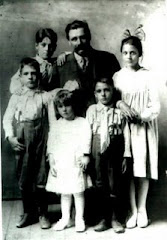"The discipline of Jehovah, O my son, do not reject and do not abhor his reproof, because the one whom Jehovah loves he reproves, even as a father does a son in whom he finds pleasure."
-Proverbs 3:11, 12
Most true Christians loyally support God and his righteous laws. However, despite help from Christian elders, a person may unrepentantly violate God's laws or reject the faith by teaching falsehoods. Did this problem come up in the early Christian Congregation? What did the early Christians and apostles do in this instance?
A shocking case of immorality was reported in the Corinthian congregation. (1 Corinthians 5:1-6) Paul under divine inspiration writes to his Christian brothers regarding what to do.
"In my letter I wrote to you to quit mixing in company with fornicators, not [meaning] entirely with the fornicators of this world or the greedy persons and extortioners or idolaters. Otherwise, you would actually have to get out of the world. But now I am writing to you to quit mixing in company with anyone called a brother that is a fornicator or a greedy person or an idolater or a reviler or a drunkard or an extortioner, not even eating with such a man...Remove the wicked man from among yourselves." -1 Corinthians 5: 9-13
Paul did not recommend avoidance of normal contacts with neighbors, workmates, schoolmates, and others who do not follow God's standards, but he clarified that any one called, a "brother", that is someone who understands and at one time dedicated his life to serve God faithfully, should be avoided, not even eating with such a man. Paul pointed out that this is necessary in order to keep the congregation that represents Jehovah God and Christ Jesus clean of all reproach.
(Please compare: Mark 2:13-17; 1 Corinthians 5:6, 7)
Through Paul, God also warned against men who promoted sects.
"As for a man that promotes a sect, reject him after a first and a second admonition; knowing that such a man has been turned out of the way and is sinning, he being self-condemned."
-Titus 3:1, 11
The apostle John also wrote: "Everyone that pushes ahead and does not remain in the teaching of the Christ does not have God. He that does remain in this teaching is the one that has both the Father and the Son. If anyone comes to you and does not bring this teaching, never receive him into your homes or say a greeting to him. For he that says a greeting to him is a sharer in his wicked works." - 2 John 9-11
Today God's arrangement to not associate with unrepentant ones is a wise protection for us.
A question arises: What about relatives?
God realizes that carrying out his righteous laws about cutting off wrong doers involves and affects relatives. Family ties continue. Men disfellowshiped continue to live with his wife and children. Respect for God's judgements and congregation move the wife and children to recognize the man altered the spiritual bond that existed between them. Yet, disfellowshipping does not end their blood ties or marriage arrangement. Normal family affections and dealings continue.
It is different if the family member lives outside the immediate family circle. It may be possible to have almost no contact at all with the relative. Even, if some family matters require contact, these would be kept to a minimum. God recognizes the difficulty on innocent family members, because of emotions and family ties. Comfort and encouragement may be found by reading about Korah and his relatives. (Numbers 16:16-33; 26:9-11; Psalms 84:10-12) The Christian that gives himself over to sin and is disfellowshipped, forfeits much: His approved standing with God; membership in the happy congregation of Christians; the sweet fellowship of those who love God and his righteous standards, including faithful Christian relatives.
How can this discipline be of benefit?
Being totally cut off from loved ones and from close contact with the Christian congregation creates in some a strong desire to repent. Many come to realize how wrong and how serious it is to turn your back on Jehovah and his righteous principles. It is not easy for relatives of a disfellowshipped person, but when they apply God's directions in their life it always turns out for good.
Our God who requires that an unrepentant wrong doer be expelled from the congregation also, lovingly shows that a sinner can be reinstated in a congregation if he repents and turns around. Is there a scriptural basis for this statement? Yes! In Paul's second letter to the Corinthians he states:
"Now if anyone has caused sadness, he has saddened, not me, but all of you to an extent--not to be too harsh in what I say. This rebuke given by the majority is sufficient for such a man, so that, on the contrary now, you should kindly forgive and comfort him, that somehow such a man may not be swallowed up by his being overly sad. Therefore I exhort you to confirm your love for him. For to this end also I write to ascertain the proof of you whether you are obedient in all things. Anything you kindly forgive anyone, I do too. In fact, as for me, whatever I have kindly forgiven, if I have kindly forgiven anything, it has been for your sakes in Christ's sight; that we may not be overreached by Satan, for we are not ignorant of his designs." -2 Corinthians 2:5-11
Paul's first letter to the Corinthian congregation pointed out many problems they had to correct causing a temporary sadness. In this second letter Paul rejoices that the Corinthians were saddened to repentance that leads to salvation. Even the one that needed to be put out of the congregation became repentant and was received back into the Christian congregation. Paul explains fully what kind of sadness he commends the Corinthians for: "Hence, even if I saddened you by my letter, I do not regret it. Even if I did at first regret it, (I see that that letter saddened you, though but for a little while,) now I rejoice not because you were saddened, but because you were saddened into repenting; for you were saddened in a godly way, that you might suffer no damage in anything due to us. For sadness in a godly way makes for repentance to salvation that is not to be regretted; but sadness of the world produces death. For, look! this very thing, your being saddened in a godly way, what a great earnestness it produced in you, yes, clearing yourselves, yes, indignation, yes, fear, yes, longing, yes, zeal, yes, righting of the wrong! In every respect you demonstrated yourselves to be chaste in this matter. Certainly, although I wrote you, I did it, neither for the one who did the wrong, not for the one that was wronged, but that your earnestness for us might be made manifest among you in the sight of God. That is why we have been comforted..."
-2 Corinthians 7:8-13
At times strong discipline is needed but it is just as a famous Bible principle states:
"True, no discipline seems for the present to be joyous, but grievous, yet afterward to those who have been trained by it it yields peaceable fruit, namely, righteousness." -Hebrews 12:11
For the official answer to this frequently asked question please see this link:
Do You Shun Former Members of Your Religion?



















































































1 comment:
I consider myself of Christian faith, and I have sinned greatly. I was a member of Christ's church, and have been disciplined, by being excommunicated. I think that if my family and friends & the church 'shunned' me, and turned their backs on me, I would possibly not even be here now. I struggle with depression and unworthiness all the time. There is a point were shunning, or completely turning your back on a loved one, can cause not only shame, embarrassment, and feelings of never being able to live up to their expectations, but hopelessness,and even death.
Post a Comment